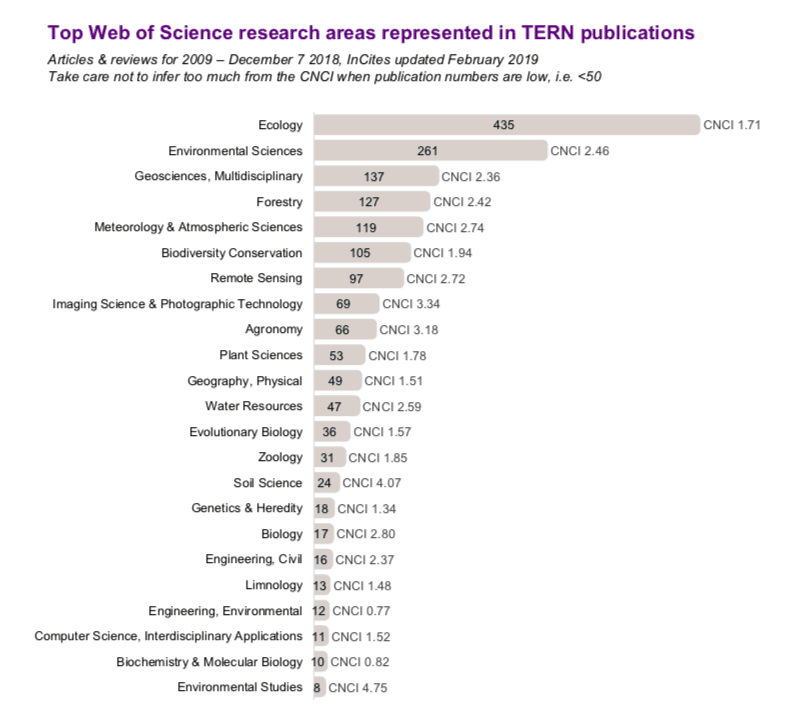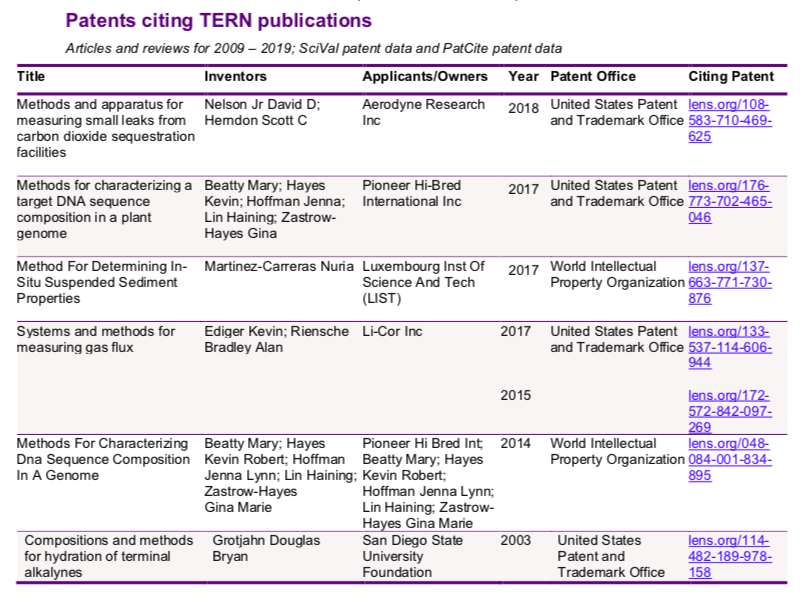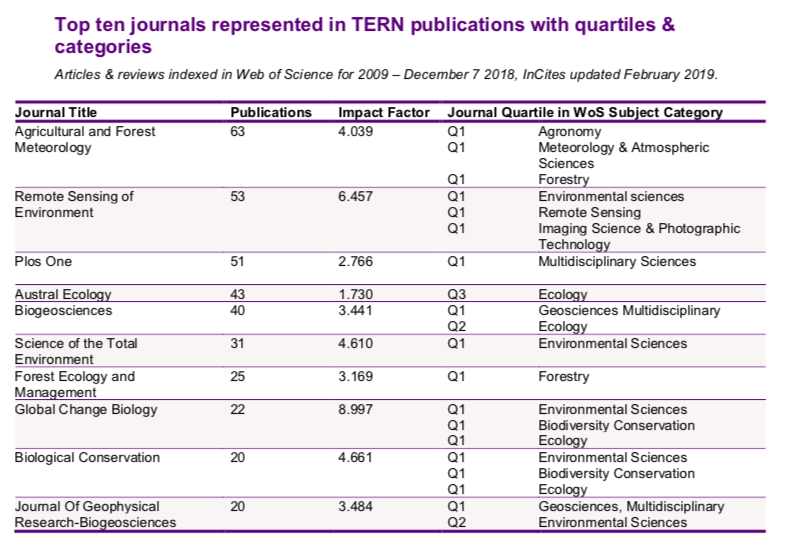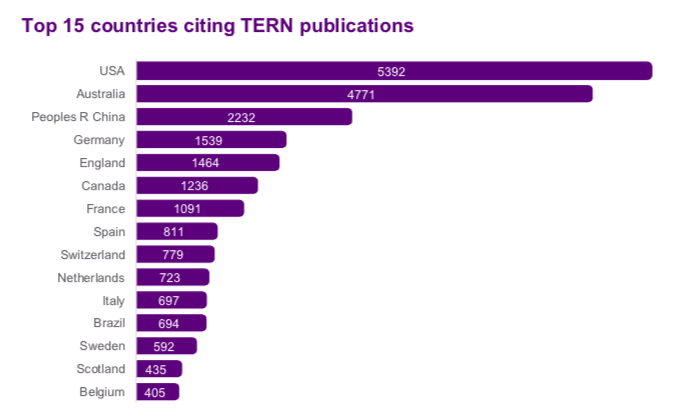Since its inception, TERN’s infrastructure has been used in a wide range of research, resulting in the publication of more than 1000 peer-reviewed scientific journal articles or books. Here, we explore some of the themes and patterns in this collection of research output.
TERN, the national observatory for Australian land-based ecosystems, is delivering data streams and infrastructure that are increasingly being used by environmental researchers and managers in Australia and internationally. As a result, there is a rapidly growing body of work citing and acknowledging the use of TERN infrastructure and data.
This wealth of research output, catalysed by TERN, can be accessed via an environmental publications catalogue. The 111-page document cites 1363 publications, including more than 1000 refereed scientific papers in high-impact, prestigious journals, and highlights the productivity of those using TERN and the importance of their research.
TERN facilitates high productivity, high impact research
The overall quality of publications, as measured by Category Normalized Citation Impact (CNCI)—a measure of impact normalised for subject focus, age, and document type—is also well above the world average (CNCI of 1).
As of February 2019, the average CNCI of TERN-facilitated publications was 2.17. And, TERN’s h-index—which combines productivity (i.e., number of papers produced) and impact (number of citations) in a single number—was 69.
TERN’s Science Partnerships Liaison, Dr James Cleverly, added some context to these stats. “For individuals, Hirsch reckoned that after 20 years of research an h-index of 20 is good, 40 is outstanding, and 60 is truly exceptional,” says James.
“For organisations, the number of investigators and funding are also factors, but considering TERN’s funding compared to its North American and European counterparts, an h-index of 69 is phenomenal in just 10 years—or even 20 years for TERN plus its pre-existing founding networks.”


TERN facilitates research for policy and practice
61 TERN articles have been cited in 101 policy documents, including by the Food and Agriculture Organisation of the United Nations, the World Bank, UNESCO, and the Analysis & Policy Observatory.
From biodiversity, threatened ecosystems and deforestation to soil security and human population, the range of policy documents influenced by TERN-facilitated research is astounding—and a true testament to the broad range of ecosystem science domains our research infrastructure supports.
In addition to high-level policy influence, TERN research outputs are also enabling scientific discovery and innovation. For example, between 2009 and 2019, seven patent documents have cited TERN facilitated articles and reviews, with four of those in the last two years alone, showing that TERN’s contribution to driving invention is increasing.

TERN facilitates joint research at home and aboard
Of the peer-reviewed publications, the journals Agricultural and Forest Meteorology (Impact Factor (IF) >4), Remote Sensing of Environment (IF >6), PLoS ONE (an international multidisciplinary Open Access journal), and Austral Ecology (the premier journal for ecology in the Southern Hemisphere) are the most represented.
In addition to facilitating research in Australia, we’re also pleased to report that our well-established international partnerships, globally renowned infrastructure and data streams are enabling joint research around the world.
Nine of the top 15 institutions citing TERN-facilitated publications between 2009 and 2018 are based overseas, highlighting the broad spread of counties whose ecosystem scientists, as well as scientists in other disciplines, are using TERN to further their research.


- The latest edition of the catalogue contains publications from 2009 to 2019 and is available for download in multiple formats on the TERN webpage. The catalogue gives a useful insight into how TERN infrastructure is being used to underpin ecosystem research, and we are looking at how we can use this record to better understand the needs of our user community, and improve our infrastructure and data delivery to stakeholders.
- A report produced by the University of Queensland’s Scholarly Communication and Repository Services summarising a number of key publication metrics can be downloaded here.






